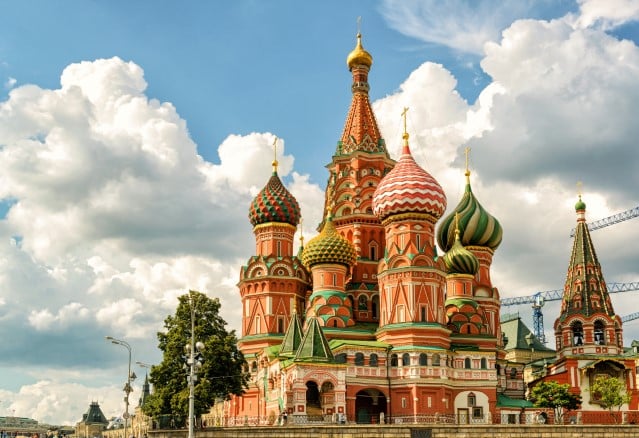After the invasion of Crimea and Donbas in 2014, several countries imposed economic sanctions on the Russian Federation and on Russian companies. The sanctions have been tightened after Russia’s invasion of Ukraine and an end to the sanctions and to a possible further tightening is not in sight.
The sanctions had and continue to have a significant impact on the resolution of disputes with persons/entities affected by the sanctions: counsel may no longer be able to represent Russian parties, the appointment of arbitrators has become problematic and the transfer of fees to counsel and arbitrators is difficult.
It did not come as a surprise that Russia took countermeasures. In response to the allegedly unfair treatment of Russian parties in international arbitration proceedings and in litigation outside the Russian Federation, the Russian Parliament adopted Federal Law No. 171-FZ[1] in 2020 “to protect the right to access to justice of sanctioned parties”.[2]
Law No. 171-FZ provides that the Russian state commercial courts (called “arbitrazh” courts) have exclusive jurisdiction over disputes involving sanctioned individuals and entities and/or disputes based on sanctions. Sanctioned individuals and entities within the meaning of Law No. 171-FZ are not only Russian individuals and legal entities on whom sanctions have been imposed, but also foreign legal entities affected by sanctions imposed on Russian individuals and legal entities.
Parties may still agree on the jurisdiction of a foreign court or on arbitration outside of Russia. However, the Russian arbitrazh courts will have exclusive jurisdiction over such disputes if one of the parties is concerned that it will not get access to justice but will be treated unfairly by the foreign court or arbitral tribunal because of the sanctions regime.
In case of a dispute involving sanctioned individuals or entities and/or in case of disputes based on sanctions, a party concerned to be treated unfairly in a foreign forum can ignore a jurisdiction or arbitration agreement and can file an action with the Russian arbitrazh courts.[3]
If such party is sued or about to be sued or if arbitration proceedings are pending or imminent, it can apply for an injunction with the arbitrazh courts ordering the other party to refrain from filing an action in a foreign court or a request for arbitration or to terminate such proceedings if already pending. [4] Non-compliance with an injunction of the arbitrazh courts gives the court the right to award the amount claimed by the other party in the foreign court or in the arbitration to the applicant as a penalty. [5]
In summary, Law No. 171-FZ gives a party targeted by sanctions the possibility to disrespect the jurisdiction or arbitration clause it had agreed upon with the other side.
Foreign judgments or arbitral awards involving sanctioned entities or based on sanctions will not be recognized and enforced in Russia unless the sanctioned party initiated the dispute in the foreign jurisdiction, or the sanctioned party did not object to the foreign proceedings. However, even in such cases it is unlikely that the Russian courts will recognize and enforce an unfavorable foreign judgment or arbitral award based on sanctions. Rather, it is likely that the Russian courts will consider such a judgment or award to be against Russian public policy.[6]
In November 2021, a bill with amendments to Law No. 171-FZ was introduced in the State Duma with the goal to extend the application of Law No. 171-FZ to more cases.
According to the explanatory note to the bill, the goal of the proposed amendments is to ensure that Russian persons have the means of judicial remedy against any negative consequences of restrictive measures. The drafters of the bill are of the opinion that Law No. 171-FZ in its present form does not provide an appropriate level of guarantees for the protection of the rights and legitimate interests of citizens of the Russian Federation and Russian legal entities affected by sanctions.[7] Should the proposed changes enter into law, the Russian arbitrazh courts would have exclusive jurisdiction for sanctions-related disputes with a foreign person who directly or indirectly contributed to the adoption of restrictive measures, for example
- by providing financial or other support to the initiators of the restrictive measures,
- by receiving unjustified preferences as a result of the restrictive measures,
- by improperly performing an obligation/refusing to cooperate in connection with the introduction of restrictive measures.
According to the explanatory note to the bill, the resignation of a person who had contributed to the introduction of sanctions from its position with a party to the dispute would not affect the exclusive jurisdiction of the arbitrazh courts.
The profile committee proposed to adopt the draft bill for consideration by the State Duma. The bill was supposed to be included in the March 2022 Duma session schedule but no steps for a vote have been taken so far. The reason that the initiators of the bill appear to have lost interest in the proposed amendments of Law No. 171-FZ may be a judgment of the Russian Supreme Court of December 9, 2021.
Early decisions of Russian courts concerning Law No. 171-FZ had held that the applicant had to prove circumstances, which showed that the sanctions in fact created obstacles for the applicant to get access to justice.[8] The imposition of sanctions alone was not considered enough to render a jurisdiction or arbitration clause unenforceable and to subject a dispute to the exclusive jurisdiction of Russian arbitrazh courts.[9] Rather, the applicant had to prove circumstances, which showed that access to justice in the foreign forum was denied. The mere assumption that the award would be unfavorable to the applicant because of a negative attitude of the foreign court or arbitral tribunal to the sanctioned Russian applicant was considered insufficient.[10]
On December 9, 2021, the Supreme Court of the Russian Federation ruled that the imposition of sanctions was enough to render a jurisdiction or arbitration agreement unenforceable.[11] The court held that sanctions adversely affect the position of Russian individuals and legal entities in the foreign proceedings. The Supreme Court was of the opinion that the negative effect of sanctions on the reputation of the sanctioned individuals and entities is sufficient to assume that the sanctioned individuals and entities will not receive the same level of protection as their opponents in the foreign proceedings.
The Supreme Court rejected the argument of the respondent that an injunction in accordance with Law No. 171-FZ would violate its right to access to justice. The Supreme Court argued that in case of an injunction, the respondent would only have to terminate the foreign court proceedings or arbitration and could then seek judicial relief from a Russian state court.
The Supreme Court’s reasoning demonstrates that the mere possibility that sanctions may play a role in the foreign proceedings is now sufficient to render a foreign jurisdiction or arbitration clause unenforceable in Russia. Upon application by the party affected by sanctions, the dispute will eventually be resolved by the Russian arbitrazh courts. Of course, it is a different story whether such judgments would be recognized outside Russia.
The far-reaching decision of the Russian Supreme Court of December 9, 2021 may be the reason why the initiators of the bill to extend the application of Law No. 171-FZ and the profile committee no longer consider an express extension of the application of Law No. 171-FZ in the statute to be necessary.
[1] See Disputes involving sanctions against Russian persons must now be settled in the Russian state courts, Global Arbitration News.
[2] Baker McKenzie International Arbitration Yearbook 2020/2021, Russia, B.1.
[3] Russian Federal Law No. 171-FZ, Art. 248-1 paras. 1, 4.
[4] The Russian Federal Law No. 171-FZ Art. 248-2 para. 1
[5] The Russian Federal Law No. 171-FZ Art. 248-2 para. 7
[6] Baker McKenzie International Arbitration Yearbook 2020/2021, Russia, A.1.
[7] See explanatory note to the bill.
[8] Baker McKenzie International Arbitration Yearbook 2020/2021, Russia, B.1.
[9] Baker McKenzie International Arbitration Yearbook 2020/2021, Russia, B.2.
[10] Baker McKenzie International Arbitration Yearbook 2020/2021, Russia, B.2.
[11] Decision of the Russian Supreme Court of December 9, 2021; cp. Baker McKenzie International Arbitration Yearbook 2021/2022, Russia, B.1.





